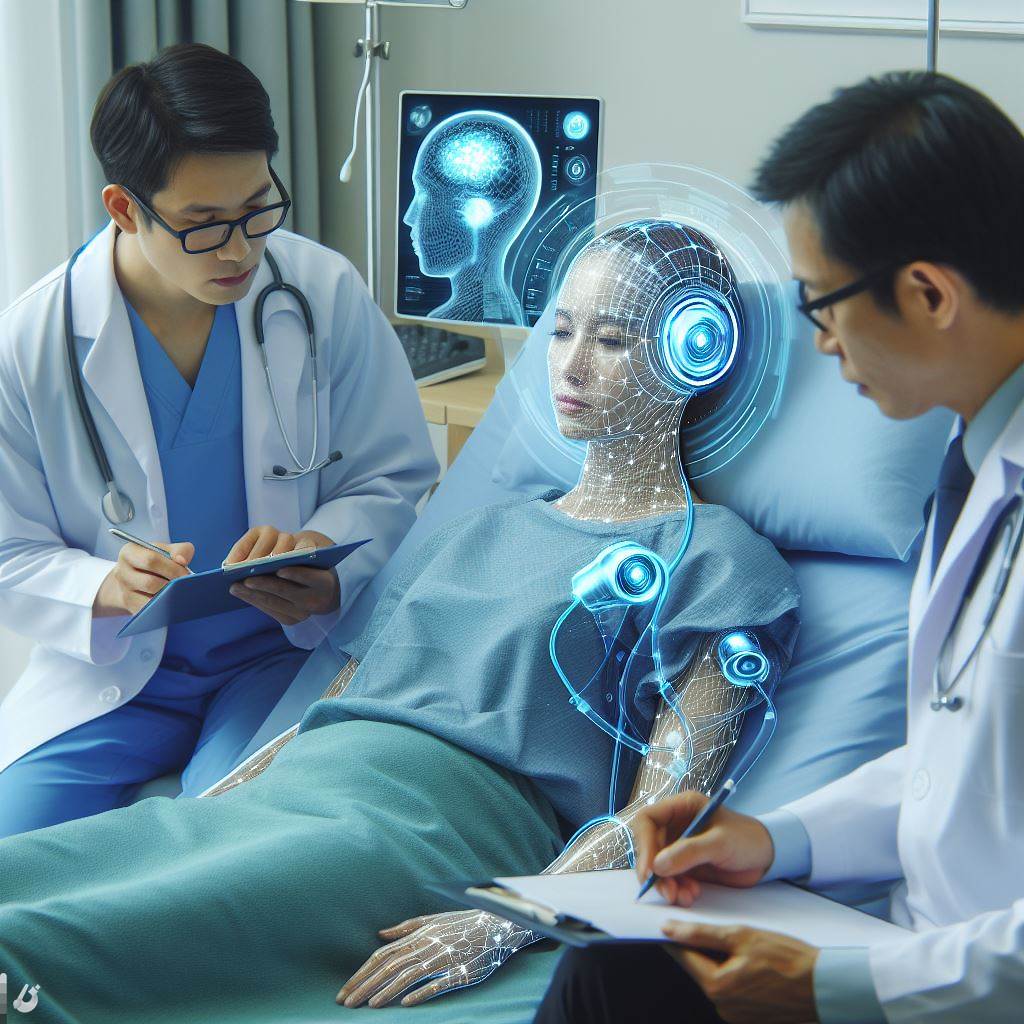
In a groundbreaking move, Northwell Health, New York's largest healthcare system, is leading the charge in harnessing the power of artificial intelligence (AI) to transform patient care. Physicians at Northwell Health are leveraging AI technologies, such as the FDA-cleared Ceribell medical device, to revolutionize diagnostics and treatment procedures.
AI in Diagnostics
At the forefront of this medical AI revolution is Ceribell, a device equipped with a head strap featuring 10 electrodes and AI capabilities. This device is changing the game in detecting seizures, providing instantaneous alerts when abnormal brain waves indicative of seizures are detected. Traditional EEG tests, which can take up to 60 hours, are being outpaced by Ceribell's six-minute diagnostic capabilities. This accelerated diagnosis is crucial, especially in intensive care units where silent seizures, not visibly apparent externally, can pose serious risks.
Real-Time Impact on Patient Treatment
Physicians at Northwell Health attest to the transformative impact of AI-driven diagnostics. Dr. Richard Stumacher, Chief Medical Officer, highlights a case where the Ceribell device played a pivotal role in treating a patient with altered mental status. The device swiftly identified a high seizure burden, enabling timely intervention and avoiding more invasive measures.
Efficiency and Resource Savings
Beyond prompt diagnosis, the Ceribell device contributes to significant time and cost savings across the healthcare spectrum. Its ability to assist with medication management and provide real-time feedback on treatment efficacy ensures patients receive optimal care without the need for transfers between hospitals. The device's ease of use, requiring minimal training, makes it a valuable asset in intensive care settings.
Future Applications and Physician Collaboration
Northwell Health's embrace of AI extends beyond seizure detection. The healthcare giant is exploring additional applications, such as remote patient monitoring, with the goal of allocating resources more efficiently. Despite the rapid integration of AI, healthcare professionals emphasize that these technologies are meant to augment, not replace, the role of doctors. Dr. Stumacher underscores the potential of AI to enhance patient care by allowing physicians to focus more on direct patient interactions.
Challenges and Future Prospects
While AI's integration into healthcare brings tremendous benefits, concerns about accuracy and safety persist. Physicians like Dr. Mangala Narasimhan emphasize the need for rigorously tested and safe AI products. As the medical community continues to refine AI-driven diagnostics, the focus remains on delivering efficient and effective care while ensuring patient safety.
In conclusion, Northwell Health's pioneering efforts exemplify the transformative potential of AI in healthcare. As AI technologies continue to evolve, striking the right balance between innovation and patient safety will be crucial for a future where AI seamlessly integrates into various facets of medical practice.